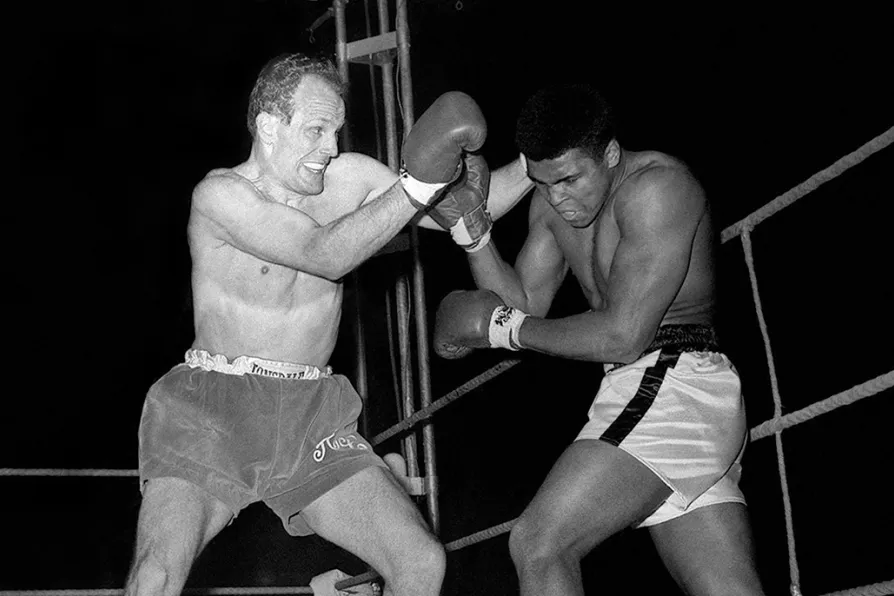
 Henry Cooper (left) challenging World Heavyweight boxing Champion Cassius Clay (later known as Muhammad Ali, of course) in 1966
Henry Cooper (left) challenging World Heavyweight boxing Champion Cassius Clay (later known as Muhammad Ali, of course) in 1966
WATCHING an old black and white film of a young Cassius Clay entering the ring at Wembley Stadium on June 18 1963 to face Henry Cooper in front of 55,000 fans is like watching footage of the first moon landing, it’s that special.
There was a joy and innocence about Clay back then. It was the year before he schooled the fearsome Sonny Liston over eight legendary rounds in Miami to claim the heavyweight title at just 22, before defiantly announcing his rebirth as Muhammad Ali, follower of Elijah Muhammad, leader of the Nation of Islam.
By the time he climbed through the ropes to face Cooper — sporting a red satin gown with the words “Cassius Clay the Greatest” emblazoned across the back, and with a crown perched on top of his head — Clay had been fighting as a professional for three years. And in that time he’d already made waves with his uncommon bombast and a style of fighting that seemed to straddle the line between ballet and performance art.

When Patterson and Liston met in the ring in 1962, it was more than a title bout — it was a collision of two black archetypes shaped by white America’s fears and fantasies, writes JOHN WIGHT

JOHN WIGHT tells the riveting story of one of the most controversial fights in the history of boxing and how, ultimately, Ali and Liston were controlled by others











